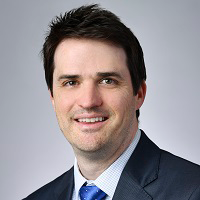Keith Vossel, MD: FDA gives full approval to first drug to clearly, but modestly, slow Alzheimer’s.

"The Food and Drug Administration on Thursday gave full approval, for the first time, to a drug that modestly slows Alzheimer’s disease — a development that offers a degree of hope for treating the memory-robbing disease but also raises difficult questions about safety, effectiveness and cost.
The agency had previously granted the drug, called Leqembi, accelerated approval based on its ability to reduce amyloid clumps in the brain, a hallmark of Alzheimer’s. Thursday’s action was based on later-stage data that showed the treatment slowed cognitive and functional decline by 27 percent over 18 months compared with placebo. That represented a five-month slowdown in progression, experts said.
...
Leqembi, which is given intravenously every other week, is for early-stage patients with mild cognitive impairment or early dementia caused by Alzheimer’s, and a confirmed buildup of amyloid in their brains.
The FDA said the drug’s label will include a “boxed warning” highlighting safety issues. That warning, sometimes called a “black box,” says that Leqembi, and other members of a new class of anti-amyloid drugs, can cause brain swelling and bleeding. The side effect, called ARIA — amyloid-related imaging abnormalities — usually is asymptomatic and managed safely. But life-threatening incidents can occur in rare cases, the FDA said.
...
Keith Vossel, director of the Alzheimer’s center at UCLA, said he was excited about Leqembi, calling it “a breakthrough scientifically.”
But he added that dementia experts would have to carefully explain the medication’s benefits and risks. Usually, initial visits with patients last about an hour, but “just a discussion on Leqembi could take 30 minutes because it requires a lengthy discussion of how the drug works, and what that means,” he said.
Vossel said the clinic will have an “amyloid infusion core” of experts to review patients who meet the initial screening requirements to ensure the drug is appropriate. He said the group would operate like a “tumor board” does for cancer cases."
Read more in The Washington Post (subscription may be required).